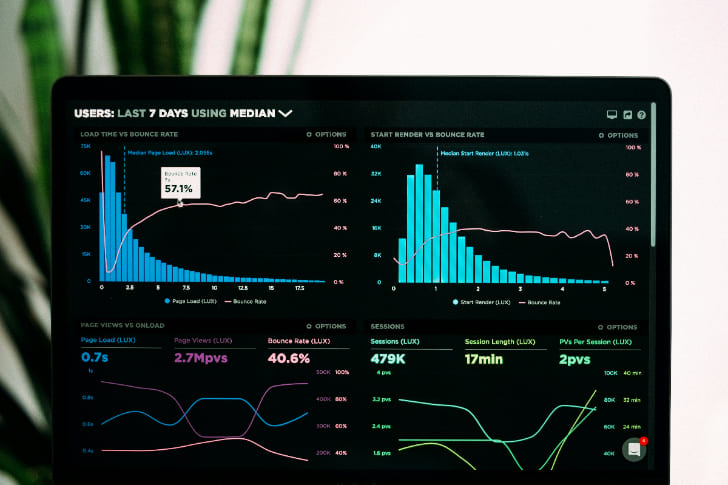For any business, protecting yourself against unexpected accidents, property damage, or lawsuits is essential. General liability insurance (GLI) provides this crucial safety net. It is designed to protect your business from financial losses caused by common risks, such as bodily injury, property damage, or legal claims from third parties.
Whether you run a small business, startup, or a large enterprise, understanding general liability insurance is critical.

This article explores 10 key things you must know about general liability insurance to protect your business and ensure peace of mind.
1. General Liability Insurance Protects Against Third-Party Claims
General liability insurance primarily covers claims made by third parties for:
- Bodily injury: Physical injuries sustained by clients, visitors, or customers on your premises.
- Property damage: Damage caused to someone else’s property due to your business operations.
- Personal and advertising injury: Defamation, libel, slander, or copyright infringement.
Example: A customer slips on a wet floor in your store and fractures their wrist. GLI would cover medical costs, legal fees, and potential settlements.
Having this coverage ensures that a single accident doesn’t drain your business finances.
2. General Liability Insurance Is Different From Professional Liability
Many people confuse general liability insurance with professional liability insurance. The distinction is critical:
- General Liability Insurance: Covers physical injuries, property damage, and certain personal or advertising injuries.
- Professional Liability Insurance: Covers financial losses caused by errors, omissions, or negligence in the services you provide.
Example: A client sues your accounting firm for giving incorrect financial advice. Professional liability covers the claim, but general liability does not.
Tip: Service-based businesses often need both types of insurance for comprehensive protection.
3. Coverage Includes Legal Defense Costs
One of the most valuable aspects of general liability insurance is coverage for legal defense costs, which can be significant even for claims without merit.
Example: A construction client claims property damage due to your subcontractor’s work. Even if the claim is baseless, GLI covers your attorney fees, court costs, and any necessary settlements up to the policy limit.
This protection ensures that your business can focus on operations while the insurance company handles the legal proceedings.
4. General Liability Insurance Protects Your Business Assets
Without insurance, a single accident or lawsuit could bankrupt your business. GLI helps protect your:
- Cash reserves
- Equipment and inventory
- Physical business assets
- Overall financial stability
Example: Your restaurant experiences a kitchen fire that damages a neighboring property. GLI would cover both your legal liability and the cost of damages, preventing substantial out-of-pocket expenses.
5. Common Scenarios Covered by General Liability Insurance
GLI typically covers several real-world situations, including:
- Slip-and-fall accidents on your business premises
- Property damage caused by employees during work
- Injuries at a company-sponsored event
- Claims of false advertising or copyright infringement
Example: At a trade show, one of your products accidentally damages another exhibitor’s booth. GLI covers property damage and any associated legal claims.
This broad protection makes GLI one of the most important insurance types for any business.
6. Exclusions Are Important to Understand
General liability insurance has exclusions. It is important to understand what your policy does not cover:
- Employee injuries (covered under workers’ compensation)
- Professional errors or mistakes (covered by professional liability insurance)
- Intentional damage or criminal acts
- Auto-related accidents (covered by commercial auto insurance)
Example: If an employee causes injury while driving a company vehicle, GLI won’t cover it—you’ll need commercial auto insurance.
Tip: Review exclusions carefully to avoid gaps in coverage and consider complementary insurance policies.
7. Coverage Limits and Deductibles
When purchasing GLI, two important aspects to consider are:
- Coverage Limits: Maximum amount the insurer will pay per claim and per policy term. Common limits include $1 million per occurrence and $2 million aggregate.
- Deductibles: The amount your business pays out-of-pocket before the insurance applies. Higher deductibles reduce premiums but increase financial exposure.
Example: Your policy has a $1 million per-occurrence limit and a $2,500 deductible. If a client claims $50,000 for injury, you pay $2,500, and the insurer covers $47,500.
Choosing appropriate limits ensures adequate protection without overpaying for coverage.
8. Premiums Depend on Risk Factors
The cost of general liability insurance varies based on factors such as:
- Business size and annual revenue
- Industry risk (construction vs. consulting)
- Location and premises exposure
- Claims history and risk management practices
- Number of employees
Example: A high-risk industry like roofing will have higher premiums than a low-risk industry like graphic design due to the likelihood of accidents.
Understanding how insurers calculate premiums helps you budget and implement risk mitigation strategies to reduce costs.
9. Risk Management Can Reduce Premiums
Many insurers offer lower premiums for businesses that actively reduce risks. Examples of risk management strategies include:
- Employee safety training programs
- Clearly defined procedures for handling customers
- Security systems and CCTV monitoring
- Regular equipment maintenance and inspections
Example: A retail store installs non-slip flooring, proper lighting, and handrails, reducing slip-and-fall accidents. As a result, insurance premiums may be lower.
Proactive risk management not only lowers insurance costs but also decreases the likelihood of claims.
10. Regular Policy Reviews Are Essential
Businesses evolve over time, and your GLI policy must reflect those changes. Regularly reviewing your policy ensures:
- Coverage matches current business operations
- Limits are adequate for potential claims
- Exclusions and endorsements are updated
- New locations, products, or services are included
Example: A small catering business expands to nationwide delivery. Reviewing your GLI ensures new operations and associated risks are covered.
Failing to update your policy can leave your business exposed to financial losses.
Additional Considerations for General Liability Insurance
- Bundling Insurance Policies: Combining GLI with property, professional, or cyber insurance may reduce premiums.
- Endorsements: Customize your policy for specific risks, such as liquor liability for bars or product liability for manufacturers.
- Claims-Made vs. Occurrence Policies: GLI is usually occurrence-based, covering incidents that happen during the policy term.
- Industry Requirements: Some contracts or clients may require proof of GLI before working together.
- Claims Reputation: Choose insurers known for efficient claims handling to ensure smooth support during an incident.
Tip: Combining insurance with a strong risk management strategy strengthens overall business protection.
Common Misconceptions About General Liability Insurance
- “I don’t need it for a small business.”
Even a home-based or small business can face claims from customers, vendors, or visitors. - “It covers professional mistakes.”
General liability does not cover errors or omissions in services. You need professional liability for that. - “My business is safe; accidents won’t happen.”
Accidents and lawsuits can occur unexpectedly, and GLI provides crucial financial protection. - “Insurance is too expensive.”
GLI premiums are typically reasonable and scalable based on risk, revenue, and business size.
Benefits of General Liability Insurance
General liability insurance offers significant benefits:
- Financial Protection: Covers legal fees, settlements, and damages.
- Peace of Mind: Allows business owners to focus on operations without fear of lawsuits.
- Credibility: Clients, landlords, and vendors often require proof of insurance.
- Compliance: Helps meet contractual or regulatory insurance requirements.
- Customizable Coverage: Endorsements and limits can tailor policies to specific risks.
Example: A small retail store faces a customer injury claim. GLI covers the medical costs, legal fees, and settlement, preventing the business from financial ruin.
Choosing the Right General Liability Insurance Policy
When selecting a GLI policy, consider:
- Your industry and associated risks
- Required coverage limits for contracts or clients
- Deductibles that balance premiums and out-of-pocket costs
- Exclusions and optional endorsements for added protection
- Reputation and claims-handling process of the insurance provider
Tip: Consult an experienced insurance broker or agent to assess risks, compare policies, and ensure comprehensive protection.
Conclusion
General liability insurance is a cornerstone of business risk management. From bodily injury and property damage to personal and advertising injury, GLI protects businesses from financial devastation caused by common risks.
By understanding the 10 essential things about general liability insurance, business owners can make informed decisions, manage risks, and ensure long-term stability.
Key Takeaways:
- General liability insurance protects against third-party claims.
- It differs from professional liability insurance, which covers service errors.
- Coverage includes legal defense costs, settlements, and damages.
- GLI protects your business assets and financial stability.
- It covers common scenarios like slip-and-fall accidents and property damage.
- Be aware of exclusions to avoid gaps in coverage.
- Limits and deductibles should align with business needs.
- Premiums depend on industry, risk, and business size.
- Risk management strategies can reduce premiums and claims.
- Policies should be regularly reviewed and updated to match business growth and changes.
General liability insurance is an essential investment that allows businesses to operate confidently, knowing they are protected against unforeseen accidents and lawsuits.









Leave a Reply